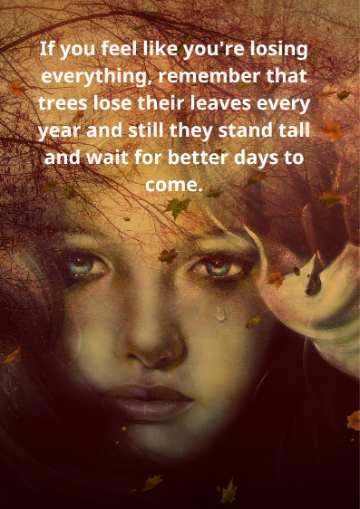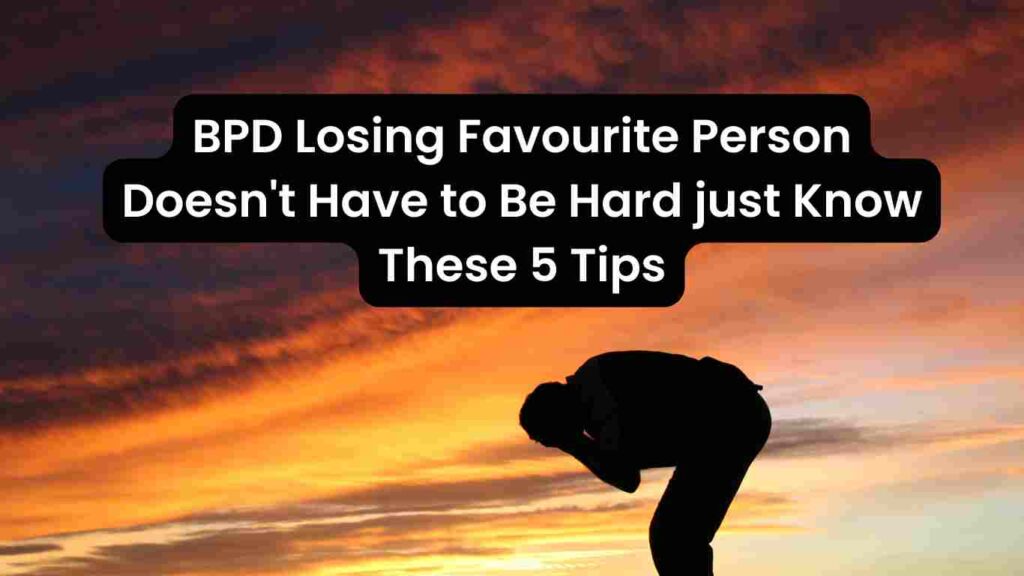This article will provide an insight into what happens during BPD losing favourite person? People with borderline personality disorder (BPD) often swing between BPD idealizing and devaluing them,
A BPD sufferer gets fixated on a certain person, and this favorite person (FP) means the whole world to them. They then have problems controlling their emotions and intensity if their FP is busy. This then creates conflicts, fear, and Rage in BPD sufferers.
Table of Contents
What is a Favourite person to BPD?
The favorite person is that person who is an anchor to BPD sufferers. A source of comfort. This person can be anyone’s favorite uncle, mentor, parent, partner, therapist, colleague, or classmate.

How do you know if it’s a best friend or a Favorite person to BPD sufferer?
The Favorite person is someone on whom your emotions become dependent. The intensity and obsession surrounding the favorite person ( not always sexual) are much more than a best friend generates. BPD sufferers become fixated on their favorite person and idealize them.
A favorite person feels irreplaceable.
Can someone with BPD have multiple favorite people?
Usually, a person suffering from BPD has only one favorite person, but in some rare cases, there may be more than one favorite person.
What happens during BPD losing favourite person?
First Stage
At first, BPD sufferer is in denial of what happened to their relationship with their favorite person. They are stunned at the new development, which can lead them to have an episode.
The second stage is begging and bargaining.
What to do now? Keeps going in your mind. It feels like the end of the world, and everything is falling apart. BPD sufferers may say or do anything to make their favorite person stay. They may shout, plead or even beg. BPD sufferers want their pain to subside. Losing a favorite person may feel like losing everything. Nothing else matters at that moment. BPD sufferers may feel like they can’t live without their FP. They believe they are losing a piece of themselves and need to figure out how to live once more.
The third stage is Rage.
BPD sufferer feels betrayed, unloved, abandoned, rejected, and alone. They are angry that their favorite person hurt them and left them. They start believing that this means the favorite person never actually cares for them.
The fourth stage is acceptance.
In this stage, they believe that their favorite person was always the wrong person for them because they threw them away and never cared for them, and that’s why BPD sufferers shouldn’t care for them too.
Why do BPD sufferers need an FP?
People suffering from BPD usually have their world revolve around one person. This happens because BPD suffered some relationship trauma in their childhood. That’s why their psyche is fixated on that moment of their life, where their life revolved around a person who was their caretaker and somehow betrayed and abandoned them. Most of the time, FP fulfills the criteria of a caregiver.
BPD sufferers, when they grow up, some part of them do move on, but their core remains attached to their childhood trauma.
How do FPs feel about their relationship with a BPD sufferer?
Favorite persons lend themselves to this relationship because of their goodwill and kind nature, but they don’t realize how dependent BPDs become on them, which scares them. They are not prepared for this degree of a serious relationship. This type of relationship, where the conversation is mainly about one person, and the other person is supportive, leads to feelings getting hurt. The more attention the FPs give, the more it makes BPD sufferers get hooked on the feelings of validation. At some point, the FP can’t handle all the emotional burden and start withdrawing while the BPDs feel abandoned and emotionally deprived.
Are you wondering what is the average length of BPD relationship? Read here
How to deal with your favorite person leaving?
Five tips to help people with BPD losing favourite person and how to cope after a favorite person has left.
- Give it time
It’s okay if a BPD sufferer needs some time to grieve; that’s completely natural. Let their hurt feelings subside with time. Don’t contact FPs until the pain subsides; they can move on. Meeting FP again and again, will make them feel like picking an old wound and not letting it heal.
- Get a therapist
Ask for professional help if it’s difficult for BPD sufferers to get through the day or have suicidal thoughts. Seek a therapist who can help them learn proper coping skills. Do not let them look for answers in alcohol or drugs.
- Diffusing attachment
Try not to let the BPD sufferers rely upon just a single individual in your life. Have numerous, steady loved ones meeting the BPD sufferer’s needs. Usually, dependency on one person tends to go wrong.
- Monitoring their closeness with FP’s
Keep a watch on how much time they spend with their FPs. They must always have people with whom they can share different parts of their life.
- Journal about BPD losing favourite person
It helps when they write in a journal like they are talking with their FP, even if they are not on terms with that person anymore.
- Join a support group
It can be online through chat rooms or support groups in person. Connect with other people from the BPD community. People going through the same thing can understand them and help BPD losing favourite person.

Final thoughts on A BPD losing favourite person
A healthy relationship between a BPD sufferer and an FP will always be a great challenge. It will be a hell of a roller coaster ride, but open communication, accountability, and professional support can turn into something rewarding and worth all the time and work.
Disclaimer
The article’s content, “BPD losing favourite person,” has been developed by third-party medical content writers and experts. The information mentioned in the article is only for educational purposes; therefore, it is requested to consult a doctor/ physician before diagnosing and deciding the treatment plan.
Healthoplane, its Licensors, and any third-party content providers do not guarantee any content’s accuracy, completeness, or usefulness. Furthermore, neither Healthoplane nor its Licensors endorse or are responsible for the accuracy and reliability of any opinion, advice, or statement made on this article or any of the Sites or Services.
We take no responsibility for your exposure to third-party content on the Sites or the Services. Healthoplane and its Licensors do not assume, and expressly disclaim, any obligation to obtain and include any information other than that provided by its third-party sources. It should be understood that we do not advocate the use of any product or procedure described in the Sites or through the Services, nor are we responsible for misuse of a product or procedure due to typographical error.
Consent
Using our website, you hereby consent to our disclaimer and agree to its terms.
Dr Amit Sharma is a Doctor and writer with a particular interest in mental health. He helps individuals by combining practical advice with emotional support.
